‘We are not going to be timid’: Harris breaks partisan tie to open Senate debate on COVID relief bill
Vice President Kamala Harris cast a tie-breaking vote Thursday to open debate in the Senate on President Biden’s $1.9 trillion coronavirus relief bill, kicking off what’s expected to be a combative and tedious process to pass the rescue package by the end of this week in the face of unanimous Republican opposition.
In a sign of what the final vote will look like, the evenly split Senate deadlocked 50-50 on a motion to begin debate on the massive legislation.
Harris, as president of the Senate, stepped in and broke the tie, clearing the way for upward of 20 hours of debate.
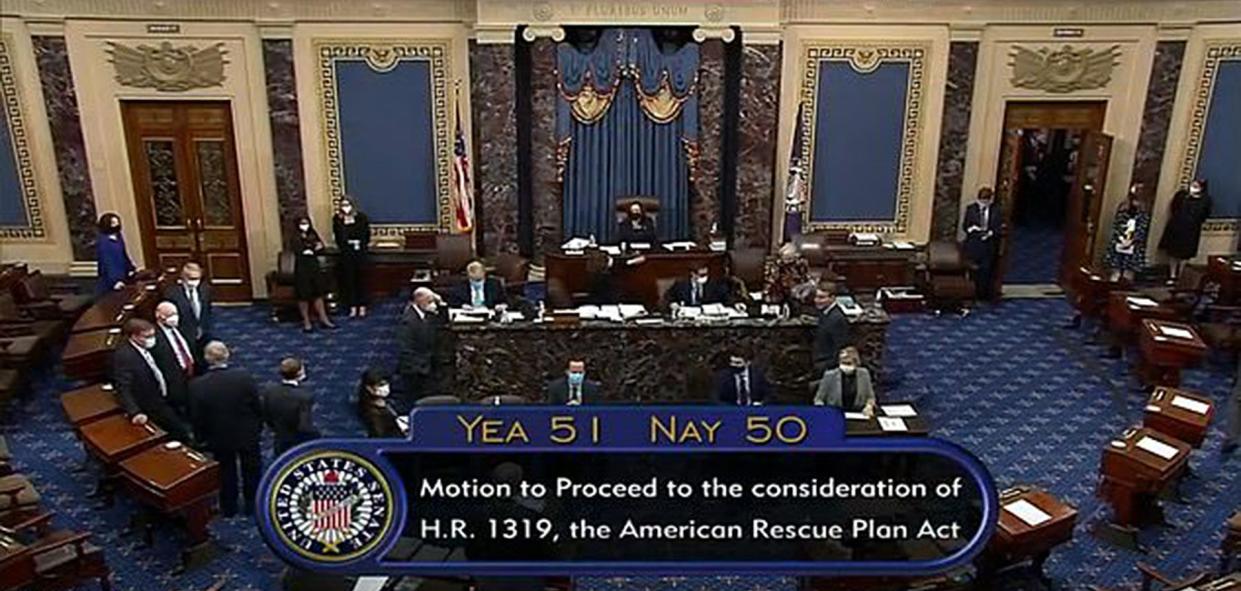
But immediately after Harris gave the green light, Wisconsin Sen. Ron Johnson, one of the chamber’s most conservative Republicans, demanded that the Senate clerk read the entire 628-page bill — a formality that is usually waived for lengthy pieces of legislation.
The reading was expected to take as much as eight hours.
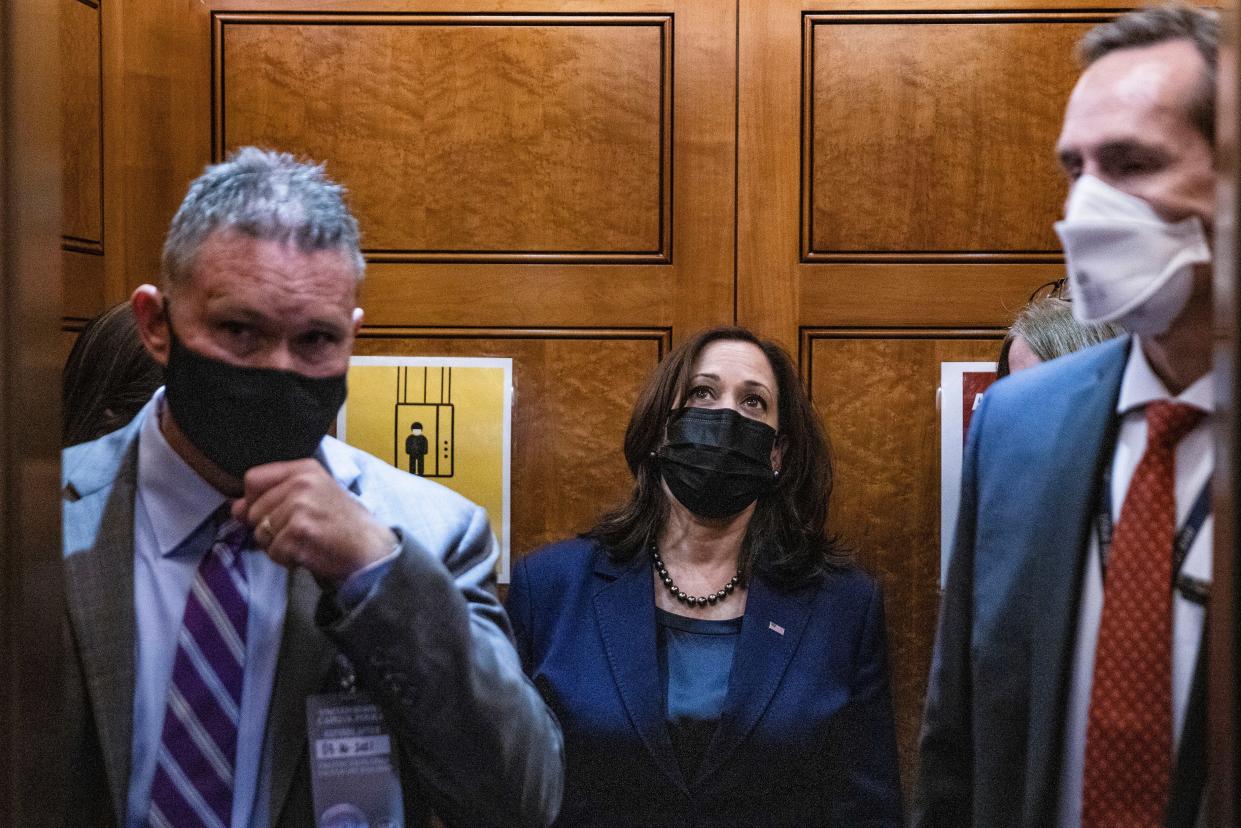
Johnson’s insistence on demanding it suggests Republicans will use any means to delay and disrupt passage of the bill, which bankrolls $1,400 stimulus checks to most taxpayers, beefed-up unemployment assistance, budgetary relief for state and local governments, billions of dollars for coronavirus vaccination efforts and aid for small businesses, among many other provisions.
“If they’re going to add nearly $2T to the national debt at least we should know what’s in the bill,” Johnson tweeted after pulling off his delay tactic.
Nonetheless, the Wisconsin Republican was seen leaving the Senate chamber shortly after requesting the reading.
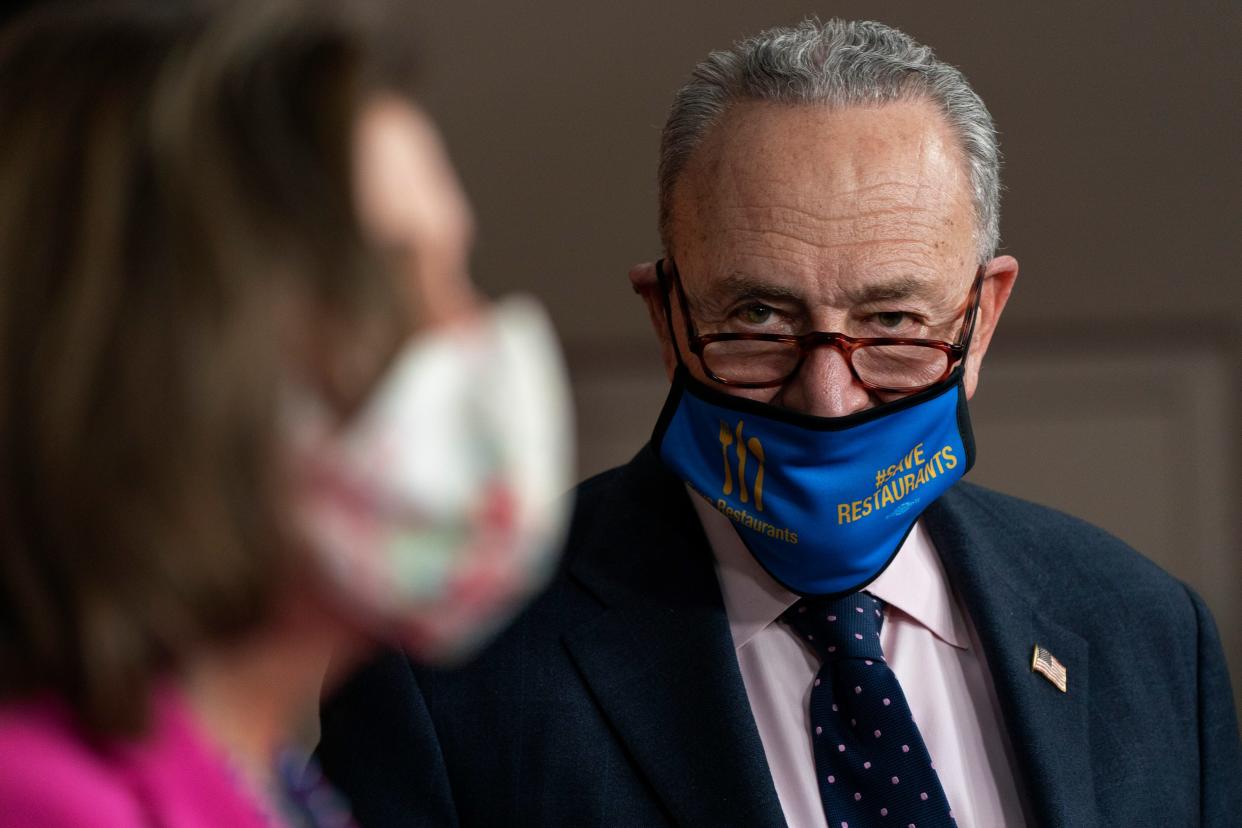
Senate Democrats, who hold de facto majority control of the chamber thanks to Harris’ ability to break ties, have come to terms with the all but certain likelihood that the rescue bill will pass without GOP support.
They have adopted a complicated budgetary process known as reconciliation in order to be able to approve the package by a simple majority, as opposed to the customary 60-vote threshold.
Polling shows the legislation is popular among both Republican and Democratic voters. Meantime, millions of Americans remain unemployed because of the pandemic and dozens of states are facing enormous deficits that could force mass layoffs in public sectors.
But Republicans in Congress claim Biden’s bill is overly expensive and unrelated to the pandemic, citing pots of money in the measure that relates to helping struggling state agencies, such as New York’s Metropolitan Transportation Authority.
Before Harris broke the tie, Senate Majority Leader Chuck Schumer (D-N.Y.) said on the floor that the time for bipartisan cooperation on coronavirus relief is over.
“We are not going to repeat the mistakes of the past. We are not going to be timid,” he said. “In the face of a great challenge, we are not going to delay. When urgent action is called for, we are not going to quit before the race is won.”
Once the bill has been read, the Senate is expected to begin debate.
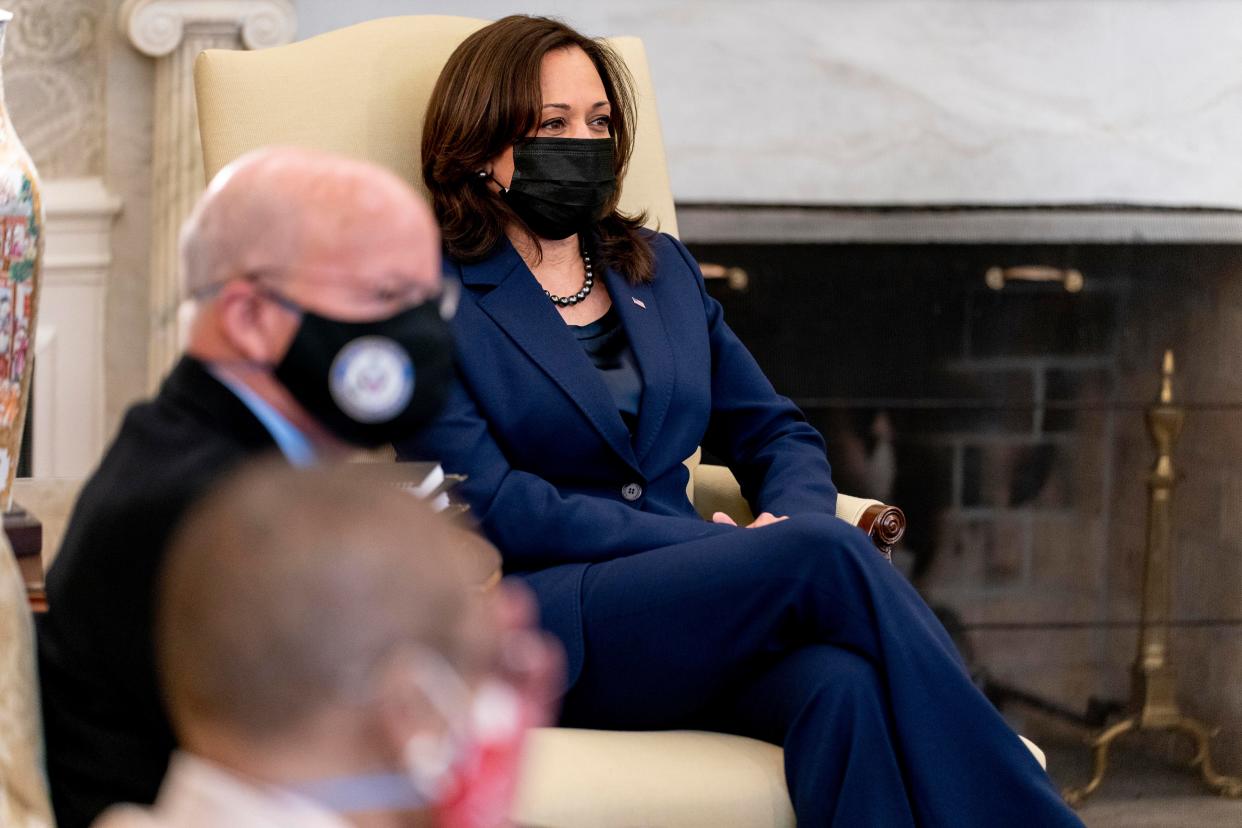
After debate wraps, senators can introduce amendments and force votes on them — another chance to gum up the works that Republicans are likely to use.
It’s not yet known when a final vote could take place, but Senate Democrats have said they hope to get the package to Biden’s desk for a final signature by Sunday. The goal for Democrats has long been to get the legislation signed into law by March 14, when federal unemployment assistance and other critical pandemic aid expire.
The House passed the $1.9 trillion legislation last week.
However, the Senate has tweaked parts of it, including removing a provision to boost the federal minimum wage after a congressional parliamentarian ruled it violated the complicated rules of the reconciliation process.
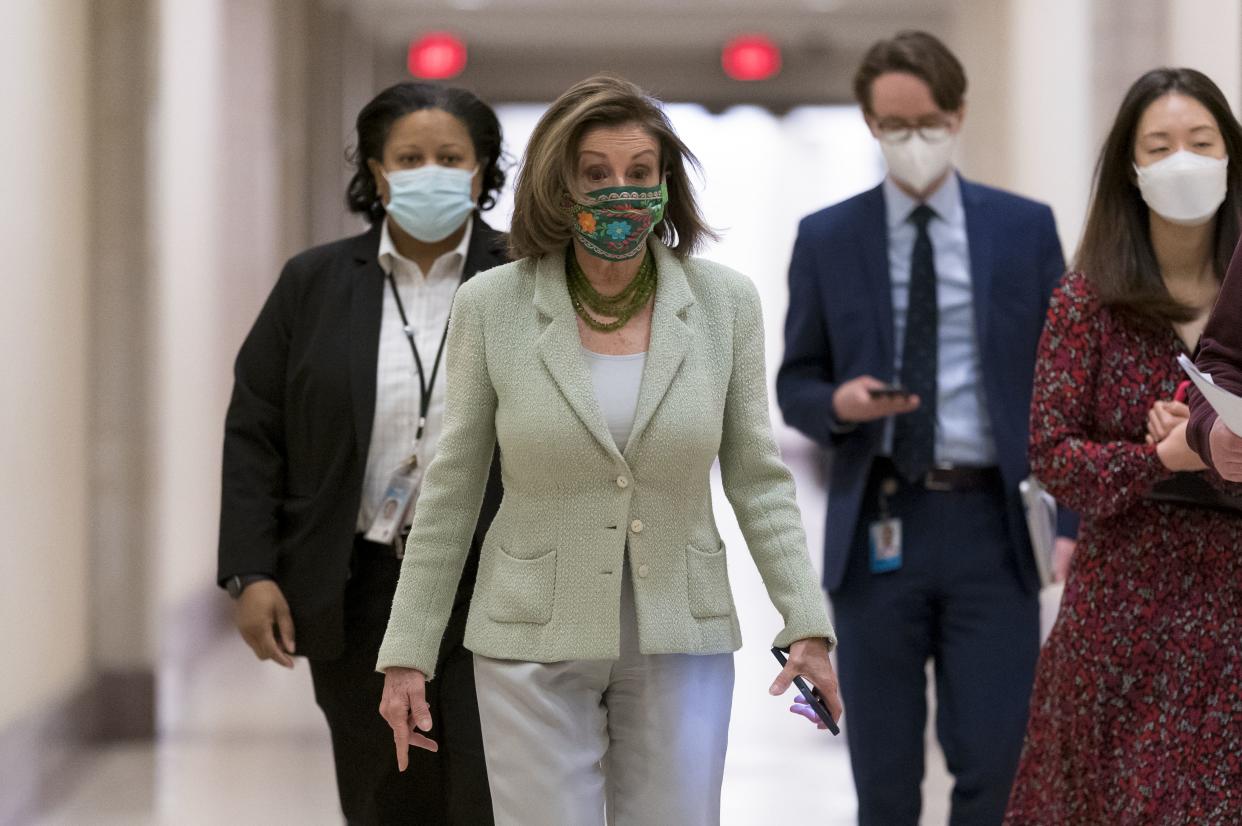
Senate Democrats have also added some provisions.
One addition is language expanding financial aid to live music venues, movie theaters and other cultural institutions by making them eligible for the Payment Protection Program, a key priority for New York, where event spaces are struggling immensely.
The Senate adjustments will necessitate that the House re-approve the bill before Biden can sign it — another potential for delay.
